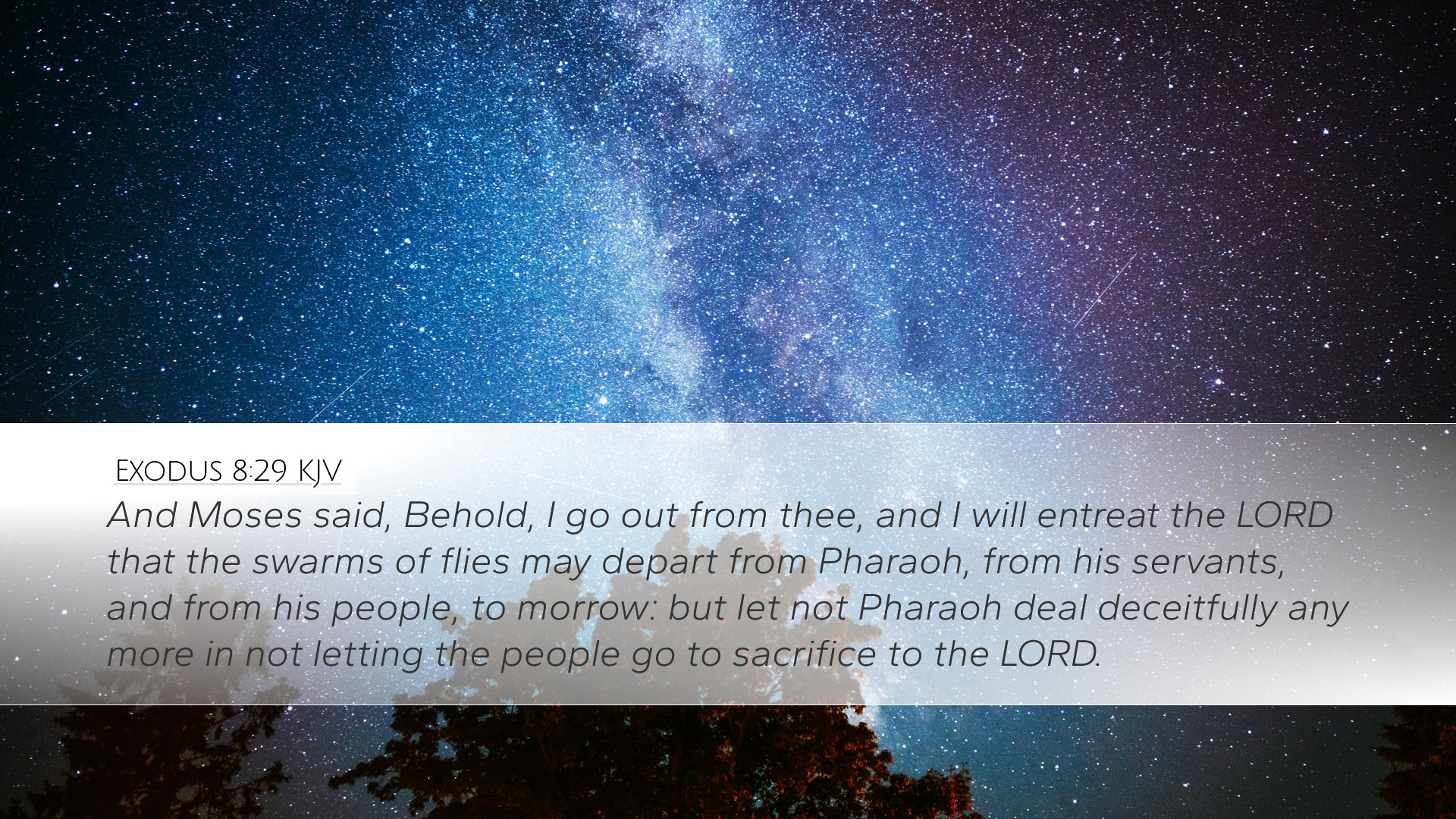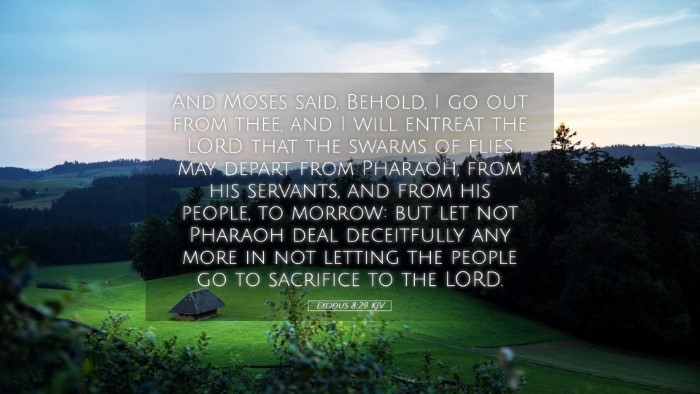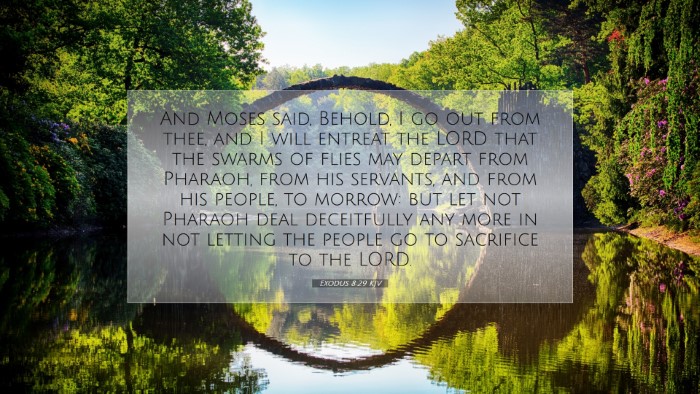Exodus 8:29 - Commentary Summary
Verse: "And Moses said, Behold, I go out from thee, and I will entreat the LORD that the swarms of flies may depart from Pharaoh, from his servants, and from his people to morrow: but let not Pharaoh deal deceitfully any more in not letting the people go to sacrifice to the LORD."
Contextual Overview
The book of Exodus presents the narrative of Israel's deliverance from Egyptian bondage and the establishment of the covenant between God and His people. Exodus 8 focuses on the plagues sent by God to persuade Pharaoh to release the Israelites. This particular verse comes in the context of the fourth plague—the plague of flies—which serves as a critical moment in the tumultuous exchanges between Moses and Pharaoh.
Commentary Insights
Matthew Henry's Perspective
Matthew Henry emphasizes the significance of prayer in Moses’ actions. He notes that Moses expresses his intention to "entreat the LORD," highlighting the necessity of divine intervention in the face of Pharaoh's obstinacy. Henry points out that Moses' prayer is not merely for the cessation of swarms but also aims at a change in Pharaoh’s heart. This illustrates that prayer is not solely about alleviating immediate troubles; it is deeply connected to spiritual transformation.
Albert Barnes' Interpretation
Albert Barnes emphasizes the notion of Pharaoh’s deceitfulness. He notes that Moses’ warning about Pharaoh's possible insincerity is significant. Barnes elaborates on the idea that Pharaoh's previous promises to let the Israelites go had been insincere—highlighting human nature’s tendency toward duplicity. This aligns with the broader theme of the struggle between divine authority and human resistance. Barnes motivates readers to recognize the gravity of Pharaoh's pride and how it can impede obedience to God’s will.
Adam Clarke's Analysis
Adam Clarke provides a more technical understanding of the text, focusing on the phrase "I will entreat the LORD." Clarke underscores the immediacy of Moses’ action, suggesting that prayer was both urgent and necessary. He also discusses the term "swarms of flies," considering the potential symbolism of insects as agents of chaos and disarray. Clarke proposes that these plagues weren’t just physical afflictions; they were also theological statements against the false gods of Egypt, which helps deepen our understanding of the narrative’s spiritual implications.
Theological Implications
This verse reveals several theological themes.
- Intercessory Prayer: Moses’ role as an intercessor signifies the importance of seeking God’s favor on behalf of others, an act mirrored in later biblical narratives where prophets and leaders plead for the people’s restoration.
- Pharaoh's Hardness of Heart: The warning to Pharaoh about deceitfulness serves as a reflection on human willfulness. It underlines the need for authentic repentance and obedience to God and warns against the rejection of divine grace.
- Divine Sovereignty: The unfolding events highlight God’s absolute power over creation and circumstance, emphasizing that God orchestrates the plagues to fulfill His covenant promises to Israel.
Application for Modern Readers
The insights derived from Exodus 8:29 resonate profoundly with contemporary believers, particularly with those in pastoral and theological leadership.
- Prayer as Action: This verse urges Christians to integrate prayer into their mission and daily lives, recognizing that earnest dialogue with God is crucial in addressing societal issues and personal struggles.
- Integrity in Leadership: The warning against deceit can serve as a powerful reminder for leaders to practice integrity in their dealings, ensuring that their actions align with their professed beliefs.
- Awareness of Spiritual Warfare: Understanding that spiritual forces are at work in the world, much like the plagues against Egypt, encourages believers to remain vigilant and proactive in their faith.
Conclusion
Exodus 8:29 encapsulates deep spiritual truths enveloped in a historical and theological narrative. By synthesizing the insights of Matthew Henry, Albert Barnes, and Adam Clarke, we gain a multifaceted understanding of the text that reveals God's character and the nature of human obedience. As we reflect on Moses’ intercession and Pharaoh’s deceit, may we be inspired to pursue truthful relationships with God and each other, while earnestly engaging in prayer for transformation and deliverance.


